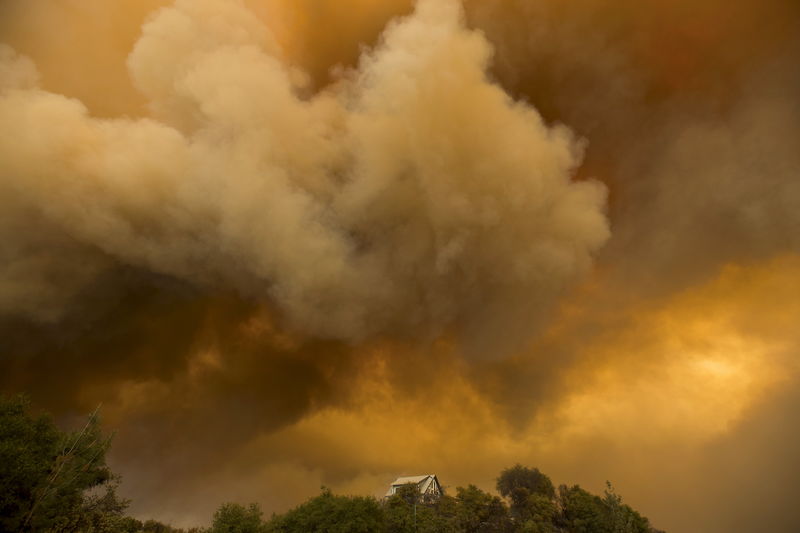By Nia Williams
CALGARY, Alberta, May 18 (Reuters) - Firefighters were
preparing to tackle hot weather and gusting winds on Wednesday
as they battled a massive wildfire raging near Fort McMurray,
Alberta, that threatens oil sands facilities and work camps
north of the city.
The fire forced the evacuation of thousands of workers on
Tuesday, prolonging a shutdown that cut Canadian oil output by a
million barrels a day. It destroyed a 665-room lodge for oil
sand workers, then blazed east toward other camps.
Winds forecast for Wednesday were expected to push the
uncontrolled blaze further east, putting oil operations in its
path, officials said. The 355,000-hectare (877,224-acre) fire
was also stretching toward the Saskatchewan border.
"We expect the fire to spread on the easterly side," Alberta
wildfire manager Chad Morrison said on a call late on Tuesday.
The wildfire is taking a toll on Alberta's economy, with one
study estimating lost oil production to cut gross domestic
product (GDP) by more than C$70 million ($54.1 million) a day.
About 8,000 workers were evacuated from camps and facilities
north of Fort McMurray on Tuesday, with both Suncor Energy Inc
SU.TO and Syncrude, majority owned by Suncor, removing all but
bare essential staff from their major operations.
None of the oil sands have caught fire, and the industry has
redoubled efforts to ensure facilities are well-protected.
Officials said facilities have been cleared of vegetation and
have lots of gravel on site, reducing their fire risk.
The roughly 90,000 residents of Fort McMurray were growing
frustrated over the lack of an estimate for their return to the
oil sands hub, which they were forced to flee about two weeks
ago.
Late on Tuesday officials told a townhall meeting with
residents they were narrowing down return dates that they hoped
to share "very, very soon," but added the city remained unsafe
because of hot spots and the fire threat.
"On the ground here, it is still very, very smoky. The air
quality is not good at all and it is not safe to return," said
municipality representative Dennis Fraser. "The number one thing
is the safety of our citizens."
Prior to the latest setback, lost oil production was
expected to average about 1.2 million barrels a day for 14 days,
or roughly C$985 million ($763 million) in lost real GDP,
according to the Conference Board of Canada.
($1=1.2934 Canadian dollars)
(Writing and additional reporting by Julie Gordon in Vancouver)
